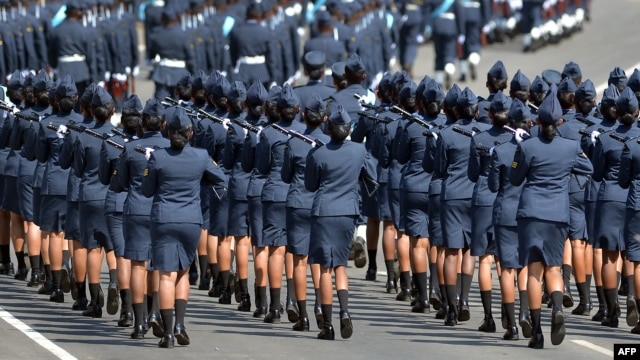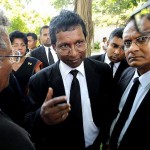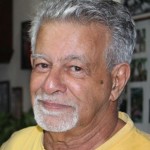 COLOMBO, Apr 29 2014 (IPS)
COLOMBO, Apr 29 2014 (IPS) - Five years after the end of a bloody and protracted civil war, Sri Lanka has begun its first survey of families of the missing in order to assess their needs.
The assessment is expected to lead to recommendations for assistance and, in some cases, bring closure, say government officials and members of the International Committee of the Red Cross (ICRC).
The families of the missing have never been categorised as a special needs group during Sri Lanka’s post-war reconstruction phase.
In January, the ICRC made a proposal to the Sri Lankan government to carry out an evaluation of the needs of families of those who went missing in the last two and a half decades.
“We are doing this countrywide from April. We will approach a representative sampling of families of the missing and understand what their needs are,” David Quesne, ICRC deputy head of delegation in Sri Lanka, told IPS. The ministry of social welfare is the government partner for the survey.
The issue is controversial. Sri Lanka’s sectarian war began in the early 1980s, with the Liberation Tigers of Tamil Eelam (LTTE) demanding a separate state for minority Tamils in the north. The rebels were finally defeated by government forces in 2009.
More than 70,000 people were killed in the conflict, and estimates of the number of people missing have varied, with some putting it as high as 40,000.
The ICRC only registers details of missing persons once a tracing request is received. Quesne said right now the ICRC has over 16,000 such requests dating back to the 1990s.
Last month, Sri Lanka rejected a resolution at the Geneva-based U.N. Human Rights Council that requested the Office of the High Commissioner for Human Rights to launch an investigation into alleged rights violations, including the issue of the missing. Foreign minister Gamini Laksham Peiris said the government would not support any such inquiry.
“We are continuing with national mechanisms,” he said, highlighting the work done with the ICRC and a needs assessment of the war displaced carried out with the U.N.
Gwenaelle Fontana, ICRC protection officer in Sri Lanka, told IPS that the survey would be island-wide and would use a sample selection of families. “The initial idea is to assess the needs of these families. We will assess all the aspects – economic, administrative, legal and psycho-social,” she said.
The sample will include families of members of the armed forces listed as missing.
“It will be a precious tool for the authorities in designing policy in favour of such families,” Fontana said.
The families of the missing have never been categorised as a special needs group during Sri Lanka’s post-war reconstruction phase.
“That is unfair because we have a unique set of needs. We have to look for our missing loved ones while making sure the family is provided for,” said the mother of a missing person from northern Kilinochchi who did not wish to be identified.
Sri Lankan officials have indicated plans to assist the families of the missing. A presidential commission on the missing is set to conclude by August. It has so far has received 16,000 complaints.
The ICRC survey is likely to conclude towards the end of the year, and officials say the report will be handed over to the government for action.
Between late 2008 and April 2009, the ICRC had evacuated around 14,000 people in need of medical attention. But later some of them were reported untraceable.
“We have received requests from families or close relatives of evacuees that they had lost track of,” Quesne said.
The ICRC began looking for the missing evacuees in January in the northern district of Jaffna. By late March, at least 26 cases had been successfully traced.
Fontana told IPS that the government authorities had shown interest in issuing ‘certificates of absence’ for the missing, instead of ‘death certificates’. Such a certificate eases legal and administrative work like pension payments and dealing with legal documents like land deeds.
“The authorities have expressed much interest. But as adaptation of the legislative framework is always complex, the process of issuing certificates of absence will naturally take time,” Fontana said.
















 The religious reconciliation unit formed yesterday (28) at the Sri Lanka police to pacify Gnanasara Thera on a proposal by Bodu Bala Sena will be yet another white elephant, said a senior official of the police.
The religious reconciliation unit formed yesterday (28) at the Sri Lanka police to pacify Gnanasara Thera on a proposal by Bodu Bala Sena will be yet another white elephant, said a senior official of the police.
 When the Action Committee for Media Freedom, a collective of media organizations in Sri Lanka, has visited the ‘Mawbima’ office to extend an invitation to its May 05 occasion, to coincide with the World Media Day, of collecting signatures for a public petition to demand the right to information, editor of the newspaper Thushara Gunaratne has said, “We will have nothing to do with such nonsense. Do not invite us for anti-government work. We will not send anyone. If anyone is found to have attended, we will punish them.”
When the Action Committee for Media Freedom, a collective of media organizations in Sri Lanka, has visited the ‘Mawbima’ office to extend an invitation to its May 05 occasion, to coincide with the World Media Day, of collecting signatures for a public petition to demand the right to information, editor of the newspaper Thushara Gunaratne has said, “We will have nothing to do with such nonsense. Do not invite us for anti-government work. We will not send anyone. If anyone is found to have attended, we will punish them.”

 Premadasa siblings Sajith and Dulanjali had gone to the home of Sumathi Publishers owner, MP Thilanga Sumathipala, yesterday (29) to exert influence to sanction ‘Lakbima’ editor Saman Wagarachchi who is constructively criticizing the immature, childish politics of Sajith Premadasa.
Premadasa siblings Sajith and Dulanjali had gone to the home of Sumathi Publishers owner, MP Thilanga Sumathipala, yesterday (29) to exert influence to sanction ‘Lakbima’ editor Saman Wagarachchi who is constructively criticizing the immature, childish politics of Sajith Premadasa.